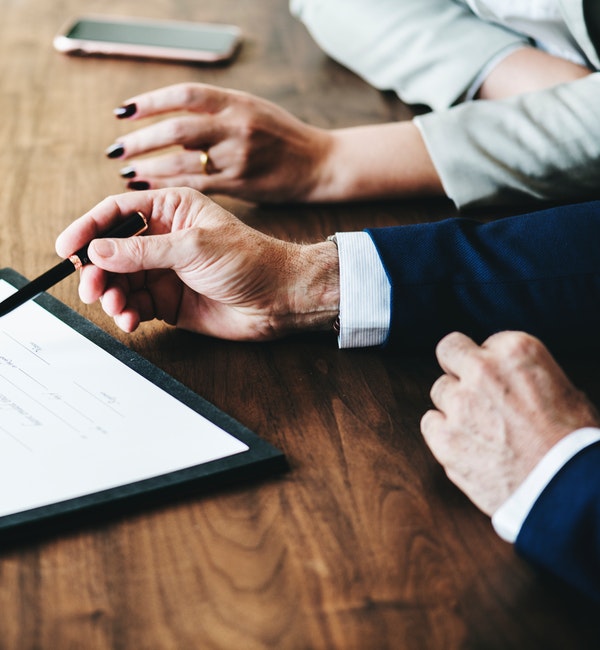If you are in debt you may be reluctant to speak with a bankruptcy lawyer. Filing bankruptcy can seem like the end of the world. Filing bankruptcy is not the end of the world. It is a chance to start your life over. If you want to know about the Chapter 13 bankruptcy process, you have come to the right place. Below, we will go over what a Chapter 13 bankruptcy is, who qualifies, an d what the process is.
d what the process is.
Chapter 13 Background
A Chapter 13 bankruptcy, is also known as a wage earner’s plan. It allows individuals who have enough income, to repay some or all of their debts over time. Individuals who file a Chapter 13 bankruptcy, will enter into a three to five-year plan. The length of the plan will depend on whether the debtor’s current monthly income is greater than the state’s median income.
The first step to filing a chapter 13 bankruptcy, is finding a law firm to help you. Filing bankruptcy is complicated, especially when you file a Chapter 13 bankruptcy. There are a lot of rules and laws that must be followed to ensure a Chapter 13 bankruptcy is completed correctly.
Our law firm can help fight your creditors. As soon as you file a Chapter 13 bankruptcy, your creditors will stop harassing you.
How Do I Qualify For a Chapter 13 Bankruptcy?
Individuals who are self-employed, operating a business or working can qualify for Chapter 13. To qualify, your unsecured debt must be less than $394,725 and your secured debts must be less than $1,184,200.
If you have filed a Chapter 13 previously, you cannot file a Chapter 13 if, it was filed during the proceeding 180 days and the case was dismissed because you didn’t comply with the rules of the court or you voluntarily dismissed the case.

Every individual must complete a counseling course before filing a Chapter 13 bankruptcy. This course can be completed online or over the phone. This course is to help you ensure that bankruptcy is the right option for you.
Individuals who file bankruptcy, can either file a Chapter 7 bankruptcy or Chapter 13 bankruptcy. A Chapter 7 bankruptcy is for individuals who have low income and assets with less equity. A Chapter 13 bankruptcy, is for individuals who have a higher income, assets with equity and don’t fall under the Means Test.
A Chapter 13 bankruptcy can allow you to keep all of your property while getting rid of your debt. Individuals often use Chapter 13 bankruptcy to stop a foreclosure sale so they don’t lose their homes. Chapter 13 is designed to help individuals catch up on late payments.
To qualify for a Chapter 13, you must show the Bankruptcy Court that you can repay your creditors or lenders over a 3-5 year repayment plan. Some individuals can pay less on their unsecured debt. Any unsecured debt that is not paid throughout the plan is forgiven.
Our bankruptcy lawyers will calculate a plan where you will make payments each month to a bankruptcy trustee. The Trustee must approve your repayment plan. Your trustee will also be entitled to a fee for distributing your payments. Your repayment plan starts as soon as the case is filed. You will have to make payments each month thereafter.
A Chapter 13 bankruptcy starts with a petition being filed in court. The Bankruptcy Court that your case will be filed, will depend on where your residence is. The Chapter 13 bankruptcy petition will list all of your basic information, income, leases, and expenses. You will need to sign off that everything in your bankruptcy petition is true and correct. Remember, lying on your bankruptcy petition can lead to criminal prosecution.
Certain debts may not be included in a repayment plan. For example, if you owe arrears on your mortgage, the arrears may be included in the payment plan but your regular mortgage payment may be paid outside the plan.
Mortgage lenders can receive payments over the length of the repayment plan, as long as your arrears are paid in full through the plan. If you are in foreclosure it is best to speak with a bankruptcy lawyer to determine how this should be handled.

Some unsecured creditors may not be paid in full as long as you will pay all of your “disposable income” over the length of the bankruptcy. You can pay less than what you owe as long as your unsecured creditors receive at least as much under the plan as they would receive if your assets were liquidated in a chapter 7 bankruptcy.
Disposable income is defined by the bankruptcy court as income (other than child support) minus any monthly expenses that are reasonably necessary for you or your family.
Once your petition is complete, our lawyer will file your petition with the court. You will then have a bankruptcy trustee assigned to your case. The bankruptcy trustee will review your financial paperwork to ensure that you can enter into a repayment plan. The trustee will review your paystubs, tax returns, and monthly expenses. They will want to see that you will be able to make your monthly payments.
Keep in mind, that you must make your first monthly payment with the trustee within 30 days after filing your bankruptcy case, even if your plan has yet to be approved by the court.
What Happens at Bankruptcy Court?
Our law firm will be with you at your bankruptcy court hearings. There are two hearings that every individual will have to attend when they file a Chapter 13 bankruptcy. The first hearing is called the 341 meeting. At this meeting, you will meet with a bankruptcy trustee who will review your financials and ask you questions about your petition.
Creditors can object to your discharge at the hearing. Often, creditors may object to your chapter 13 bankruptcy, if your plan provides that creditors will get less than what is owed.

The second hearing is a confirmation hearing in front of the judge. This meeting is usually held one month after your first meeting. At this hearing, you will request that the judge approve your repayment plan. The judge will approve your plan as long as the Trustee recommends approval. The Trustee will recommend approval if you can show that you are up to date on all of your monthly payments and you will be able to continue making payments. If the plan is approved, your trustee will distribute all the funds to your creditors.
If confirmed, you will need to make your monthly payment for the next 3-5 years. Falling behind on these payments can get your case dismissed. Thus, staying up to date on payments to the Trustee is vital. If you fall behind on your plan payments creditors can ask the court to begin collection or foreclosure proceedings against you again. This can put you right back into the same position that you were in before filing bankruptcy.
If the court denies your plan, you may be able to modify your plan or convert your case to a Chapter 7 bankruptcy. If your plan gets dismissed, the Court can allow the trustee to keep some funds, but any remaining funds must be paid to the creditor.
Going to court is never an easy process. Our lawyers will hold your hand through the process to ensure that your bankruptcy case is handled efficiently. By having us by your side, we can make sure that the trustee gets everything he/she needs and you can begin starting your life anew.
The Bankruptcy Discharge
Once you have made all of your plan payments, you will get a bankruptcy discharge as long as (1) all domestic support payments that were due before the chapter 13 was paid (2) you did not receive a discharge in a prior case filed within a certain time frame (2 years for prior 13) (3) you have completed your second counseling course. Once granted a discharge, this means that you are no longer liable for the debt.
How Will Chapter 13 Impact My Credit Score?
A Chapter 13 bankruptcy, will stay on your credit report for seven years after you receive a discharge. Don’t worry, many people can start rebuilding their credit during their chapter 13 bankruptcy. This can be done by continuing to make your car payments and mortgage payments. Some lenders will even allow you to get a mortgage after one year if you have made all of your payments.
How is Bankruptcy different from Debt Settlement?
The chapter 13 bankruptcy process is much different from doing debt settlement. Individuals often assume Chapter 13 is the same as being in a debt settlement program. The most important difference between the two is once a Chapter 13 plan is confirmed, creditors can no longer sue you and interest and surcharges stop accruing. In a debt settlement plan, creditors are still able to go after you and surcharges, fees and interest will continue to accrue. If you are facing foreclosure, a Chapter 13 will allow you to save your home and continue making payments.
Chapter 13 Bankruptcy Help
Our bankruptcy lawyers can help you file for a Chapter 13 and get a fresh start. If you have questions about the bankruptcy process our lawyers are here to help you. You can reach us by calling 973-979-9078 or emailing us at karra@klkbankruptcylawyer.com
Find Out More About Filing Bankruptcy
Bankruptcy Basics
Should I Hire a Bankruptcy lawyer
Should I File Bankruptcy
How Much Does Filing Bankruptcy Cost
Is Filing Bankruptcy Bad?
How Can I Stop a Wage Garnishment?
Chapter 7 Bankruptcy
